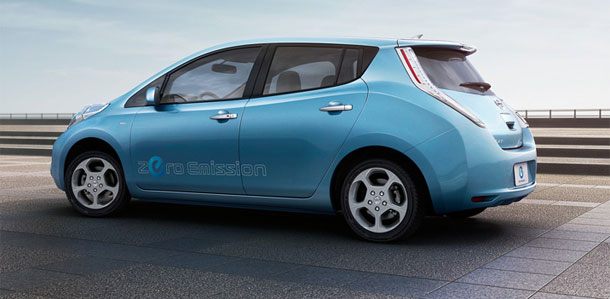- Written by EOBIN ROY
- Hits: 3540
ELECTRIC CARS
ELECTRIC CARS:A DEFANITIVE GUIDE
An electric car is powered by an electric motor instead of a gasoline engine. The
electric motor gets energy from a controller, which regulates the amount of power—based on the driver’s use of an
accelerator pedal. The electric car (also known as electric vehicle or EV) uses energy stored in its rechargeable
batteries, which are recharged by common household electricity.
Unlike a hybrid car—which is fueled by gasoline and uses a battery and motor to
improve efficiency—an electric car is powered exclusively by electricity. Historically, EVs have not been widely
adopted because of limited driving range before needing to be recharged, long recharging times, and a lack of
commitment by automakers to produce and market electric cars that have all the creature comforts of gas-powered
cars. That’s changing. As battery technology improves—simultaneously increasing energy storage and reducing
cost—major automakers are expected to begin introducing a new generation of electric cars.
Electric cars produce no tailpipe emissions, reduce our dependency on oil, and are
cheaper to operate. Of course, the process of producing the electricity moves the emissions further upstream to the
utility company’s smokestack—but even dirty electricity used in electric cars usually reduces our collective carbon
footprint.
Another factor is convenience: In one trip to the gas station, you can pump 330
kilowatt-hours of energy into a 10-gallon tank. It would take about 9 days to get the same amount of energy from
household electric current. Fortunately, it takes hours and not days to recharge an electric car, because it's much
more efficient. Speaking of convenience, let's not forget two important points: charging up at home means never
going to a gas station—and electric cars require almost none of the maintenance, like oil changes and emissions
checks, that internal combustion cars require.Electric motors develop their highest torque from zero rpms—meaning
fast (and silent) zero-to-60 acceleration times.
“The electrification of the automobile is inevitable.”
Bob Lutz
Vice Chairman, General Motors
.gif)
BMW is working on a small electric car that could launch in 2012. The
Megacity is a low-slung three-door four-seat hatchback coupe. The car is smaller than the Honda Fit, and will have
a projected range of 100 miles. The BMW Megacity, which could be sold either as a BMW or Mini, is not much more
than a concept at this stage, but pressure on BMW to meet California's zero emissions vehicle requirements might
bring the car to life—albeit in small numbers.
BYD E6
Subaru 1RE
If China’s BYD can deliver on its big promises for the E6 all-electric
crossover, then it could take the US by storm. (Investment guru Warren Buffet is betting that BYD will come
through.) Unlike the small city-oriented electric runabouts on slate from established carmakers, the E6 is a
five-passenger wagon capable of carting a typical American family. Moreover, the E6 has a range of 200 to 250 miles
and boasts a 0 to 60 mph time of less than 10 seconds. Top speed is 100 mph. The vehicle can be fully charged in
about 10 hours by plugging into a standard household outlet. BYD says that it takes only 10 minutes to charge to 50
percent capacity and 15 minutes to the 80 percent level. BYD has been in the battery business only since 1995, and
started building cars in 2003. Considering that the company maintains an R&D department with 8,000 engineers, it’s
not surprising that the initials BYD stand for “Build Your Dreams.”
BYD showed the E6 at the 2009 Detroit Auto Show along with its F3DM and
F6DM plug-in hybrid sedans. It announced plans to sell the F6DM in the US within a few years, although it didn’t
set a firm schedule for any of its electric-drive vehicle—probably wise, since the cars have not yet been certified
 Southern California automaker Coda Automotive announced plans to bring a
Southern California automaker Coda Automotive announced plans to bring a
new electric car to the US from China in 2010. The all-electric sedan is based on an existing gas-powered four-door
car, known as the Hafei Saibao 3, built in Harbin, China. Re-engineered with a lithium ion battery, the Coda sedan
promises a driving range of 100 miles. The MSRP for the Coda sedan will be around $40,000. The scrappy California
company may be the first start-up to offer a practical and affordable electric car to mainstream buyers.
Ford Focus EV
